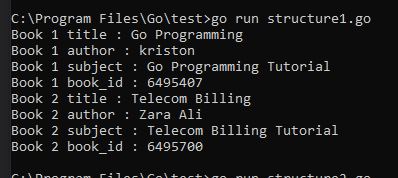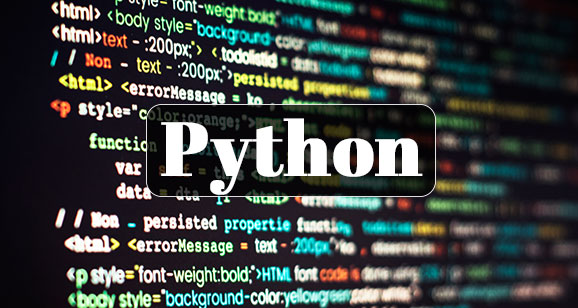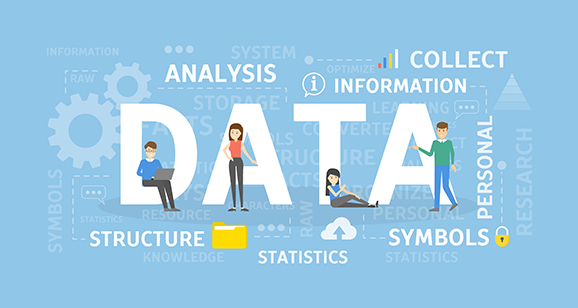Structs in Golang
Structures in Golang
In Go (Golang), structures, also known as structs, are a fundamental composite data type use to define custom data structures with fields. Structs allow developers to encapsulate related data fields into a single entity, providing a way to organize and manage data more effectively.
A struct in Go is defined using the type keyword followed by the struct keyword and a set of field declarations enclosed in curly braces {}. Each field within a struct is define with a name and a data type, representing a specific piece of data associate with the struct.
Structs can be use to model real-world entities or abstract data concepts by grouping relate data fields together. They support composition, allowing structs to contain other structs or reference types as fields, enabling complex data structures.
Prerequisites
Hardware : Local Machine
Software : VS Code, Golang
Simple Structure program

check the Output below :

Accessing Structure members


check the Output :

They enable developers to model real-world entities and manage data in a structured and type-safe manner.
However, you can use pointers to structs to avoid copying large structs and modify the original struct’s contents directly.
Understanding structs is essential for effective Go programming and building scalable and maintainable applications.






